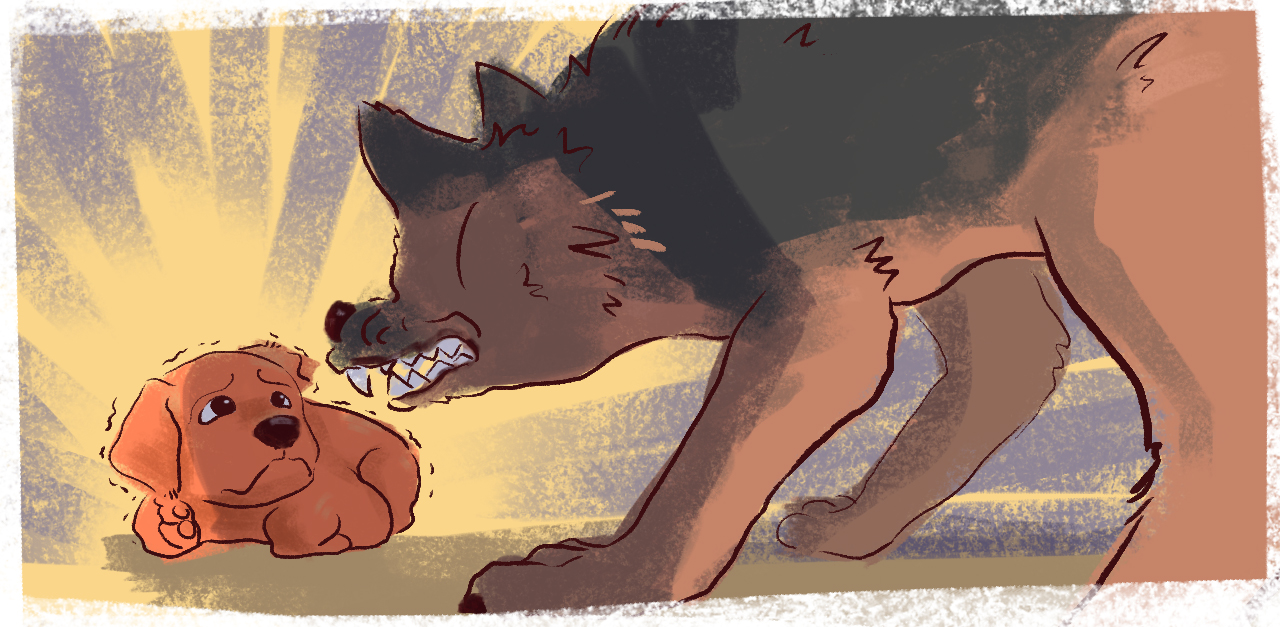
If your puppy is attacked by another animal, it’s pretty much a nightmare come to life for any loving dog owner. But if you do find yourself in a scenario where your pup may be threatened, or if they have already been attacked, you should be aware of how to handle the heartbreaking and dangerous situation so that you can protect both your pet and yourself.
Not only should you be able to recognize the signs of a potential attack before it even happens, but you also need to be aware of how to handle the bigger issues — as well as the smaller details, like collecting the necessary info from witnesses and possibly reporting the incident to the authorities. And, of course, you’ll want to know how to help your puppy recover from the traumatic circumstances and heal any potential injuries.
As hard as it is to imagine your dog in any sort of scary situation, here’s what you need to know and do if your puppy is attacked or otherwise threatened by another dog or animal.
Recognizing the Signs of an Attack Before It Happens
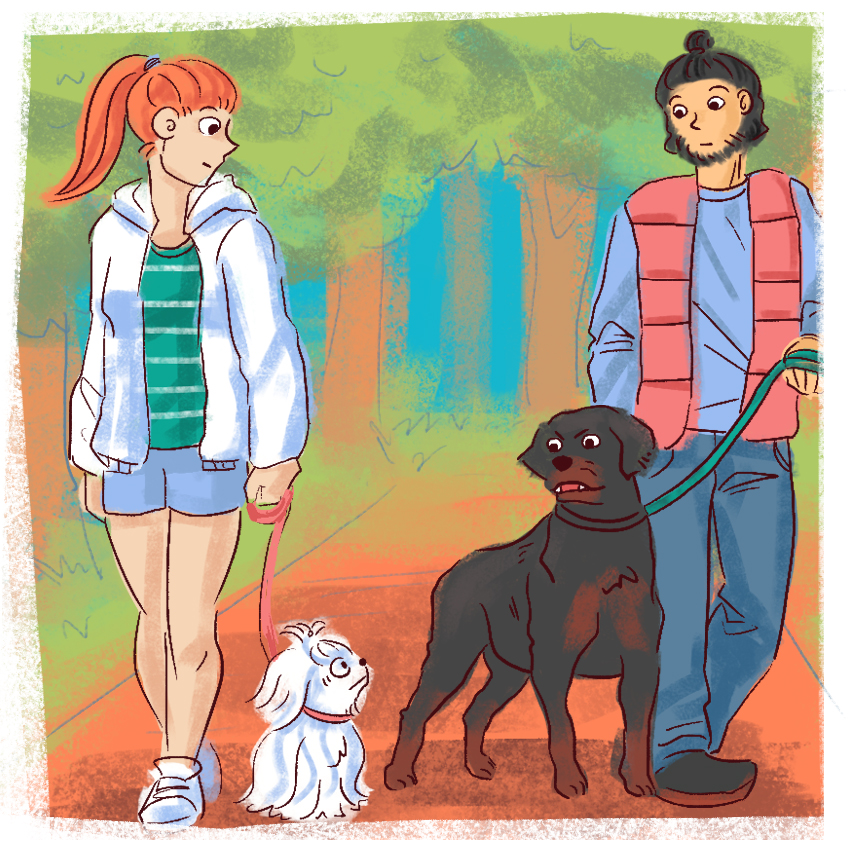
When an animal is about to attack, it usually displays a range of warning signs first that can give you a chance to exit the situation before it becomes any more dangerous. If a dog is growling, barking, snarling, baring their teeth, or is pulling on their leash (if they’re on one), there’s a good chance that it’s about to attack.
Ideally, you want to avoid (or minimize the risk of) an attack ahead of time, says dog expert and trainer Jeff Franklin, the owner of Cobra Canine.
"A puppy being attacked by another dog can be a lifelong traumatic event, so of course the first thing I do is try to prevent this at all costs by keeping my puppies on leash (to control the situation if an unleashed dog approaches), staying observant as best as possible while on walks or hikes, and when needed, picking up the puppy and/or putting myself between my puppy and any approaching dog," Franklin tells LittleThings. "I do not — and I know many folks will not like this one — take my puppies to dog parks or other areas where I do not personally know other dogs, as the benefit compared to the risk is not worth it to me. I can socialize and exercise my puppies in many other ways."
If an Attack Happens, Stay Calm
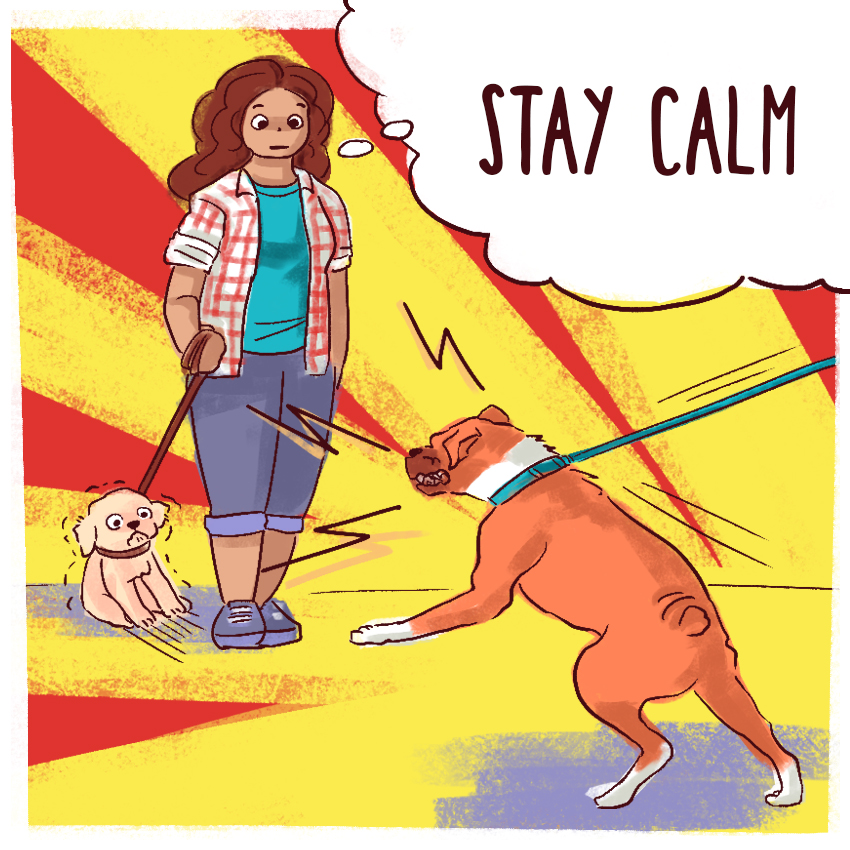
While you may naturally want to panic when your puppy is attacked, it’s incredibly important to stay as calm as possible and don’t show fear. If you yell or rush at the dogs, you could send the attacking animal into a further fury and cause more harm than good. And if you seem fearful, you may make yourself vulnerable. Instead, stay in control of yourself, your puppy, and the situation.
Don’t Challenge the Other Dog but Be Assertive
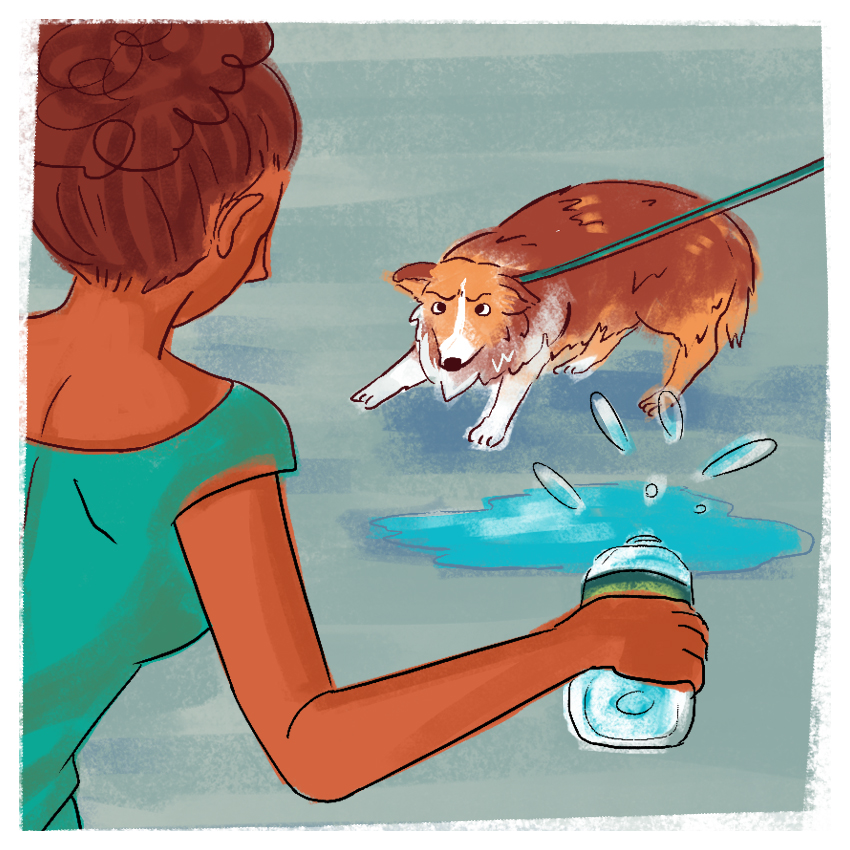
While you want to be sure to control the situation, you also need to avoid being aggressive. If an attacking dog sees you as an animal who’s challenging it or is even a potential threat, then they may attack you. Instead, you want to de-escalate the situation by claiming your space. Don’t make eye contact with the other dog, but back away slowly and/or place a barrier between your pup and the attacking dog. You can also splash water on the dogs to break up the fight while making yourself as big as possible. You want to be the most calm-yet-formidable one in the area.
Don’t Crouch Down or Pick Up Your Puppy Mid-Attack
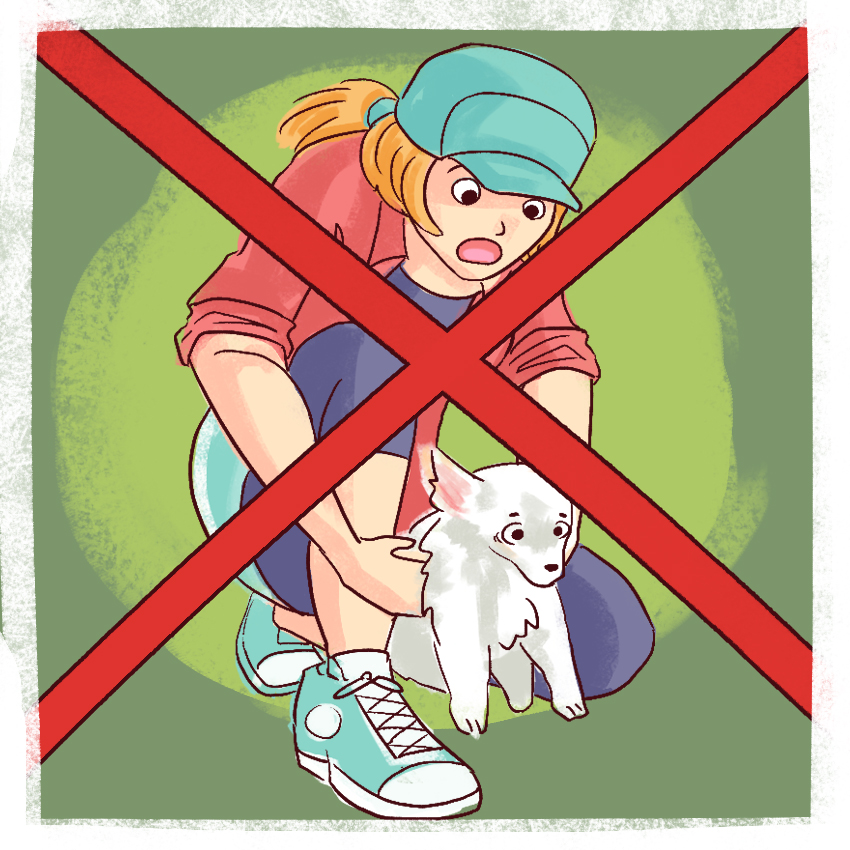
While your instinct may be to rush in to protect your puppy by crouching down to cover it or pick it up, this can put both yourself and your dog in even more danger. Not only are you putting yourself in a pose that an attacking dog will interpret as submissive and weak, but it can also put you in a position where you can also be attacked and seriously hurt. Instead, as mentioned above, stand tall and make yourself as big as possible as you break up the fight by either slowly removing yourself and your puppy from the situation or using a barrier (or water) to separate the animals.
Address Your Puppy’s Immediate Needs
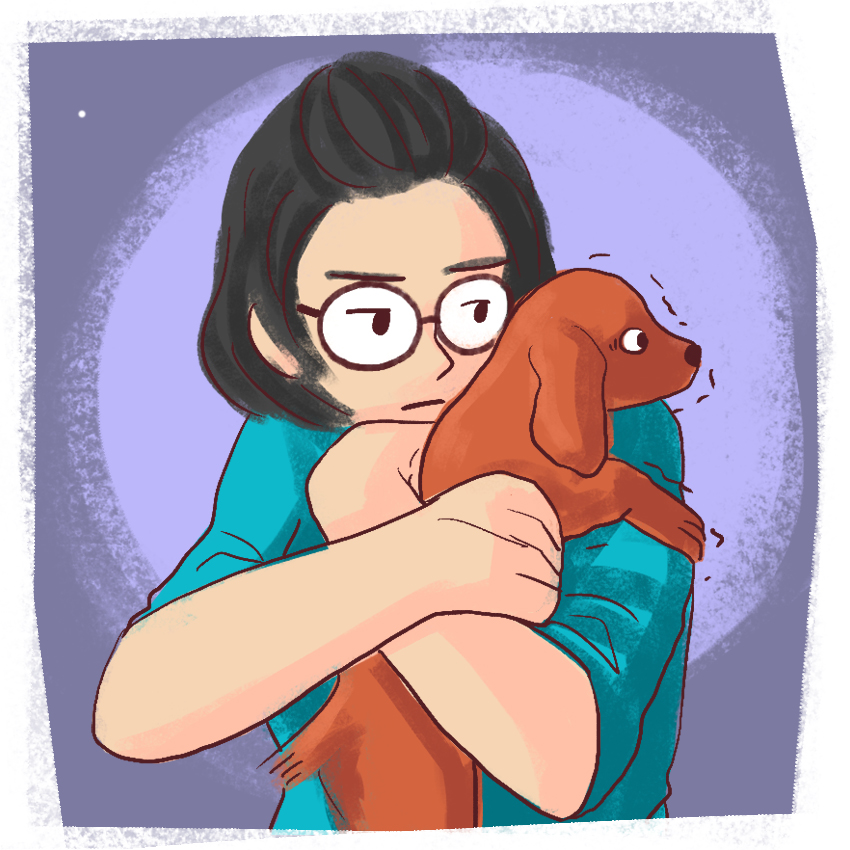
When you’ve gotten away from the attacking dog, you first need to address your puppy’s immediate needs.
"In my experiences, when a puppy is attacked by another dog, of course the first concern is to check them out from head to toe, looking for any injuries and treat as needed," Franklin tells LittleThings.
Your pup will likely be scared, confused, and possibly in shock. They may also be in a panicked state, so they could lash out at you and even try to bite you merely because they’re reacting on instinct. Alternatively, they might try to run away while they still perceive danger.
When you can carefully do so, try to reassure your puppy that they are now safe by using a soothing tone to talk to them. You can also pet them gently or wrap them in a warm and familiar blanket, but you may not want to do so until you’re able to check for potential injuries that aren’t immediately obvious to the naked eye.
Your puppy may have been bitten, scratched, or crushed during the attack, in which case you need to immediately address the injury. If your puppy has been bitten or scratched, pour warm water on any wounds and apply a clean cloth to stop any bleeding and to protect the opening. If your puppy has been crushed, they may have a broken bone or internal injury. When you can, carefully pick them up and move them as gently as possible while getting them right to the veterinarian — if you can, you might want to call ahead to let them know that you’re on your way and have an emergency.
Talk to the Other Owner and Gather Important Info
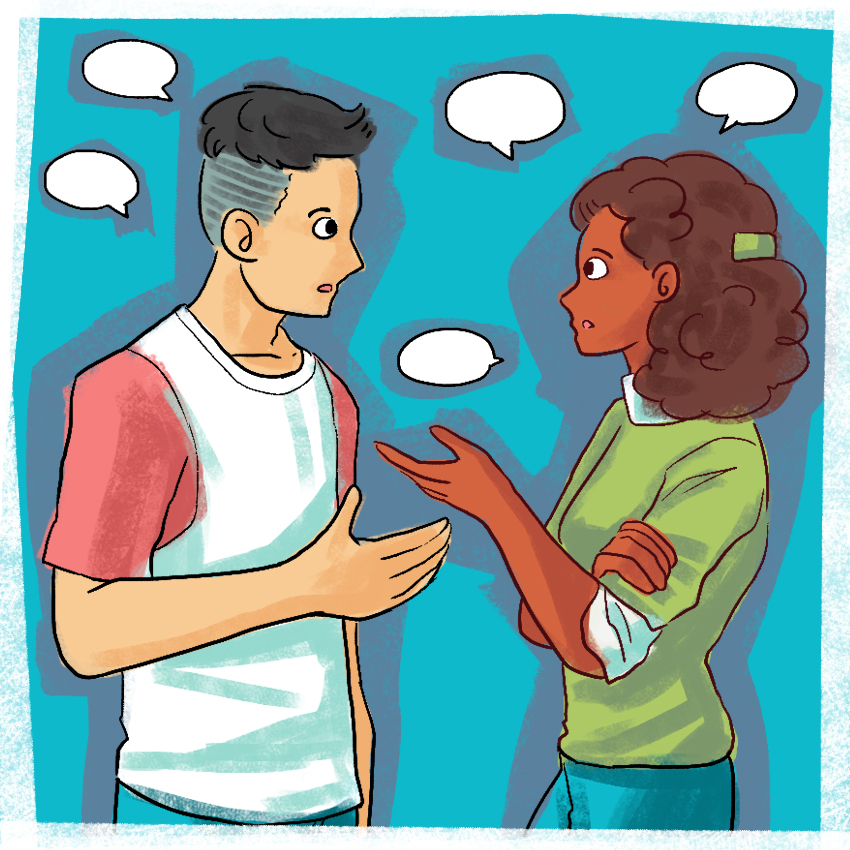
When you and your puppy are out of danger and after you’ve addressed your dog’s immediate needs, you’ll want to gather as much information as you can. While you may think that you’ll remember every terrifying detail, the fact is that you may forget things, due to the fact that you’re so upset and the incident may end up as a foggy memory that’s difficult to discern.
Be sure to write down the date, time, and location of the attack, as well as anything else that comes to mind, no matter how big or small.
You should also try to talk to the owner of the dog that attacked your pet. Although they may also be upset and perhaps even defensive or unhelpful, you will want to try to get information from them such as their name and phone number, the breed of their dog, any information about the dog’s past history with attacks, and any possible health issues their dog may have.
If the owner if not being helpful, write down any details you notice, such as the dog’s breed, color, size, markings, leash and/or collar color and design, as well as their owner’s description and even their license plate number if they head to a car.
If it’s safe to do so, you may also want to take a picture of the dog that attacked your puppy.
Talk to Witnesses
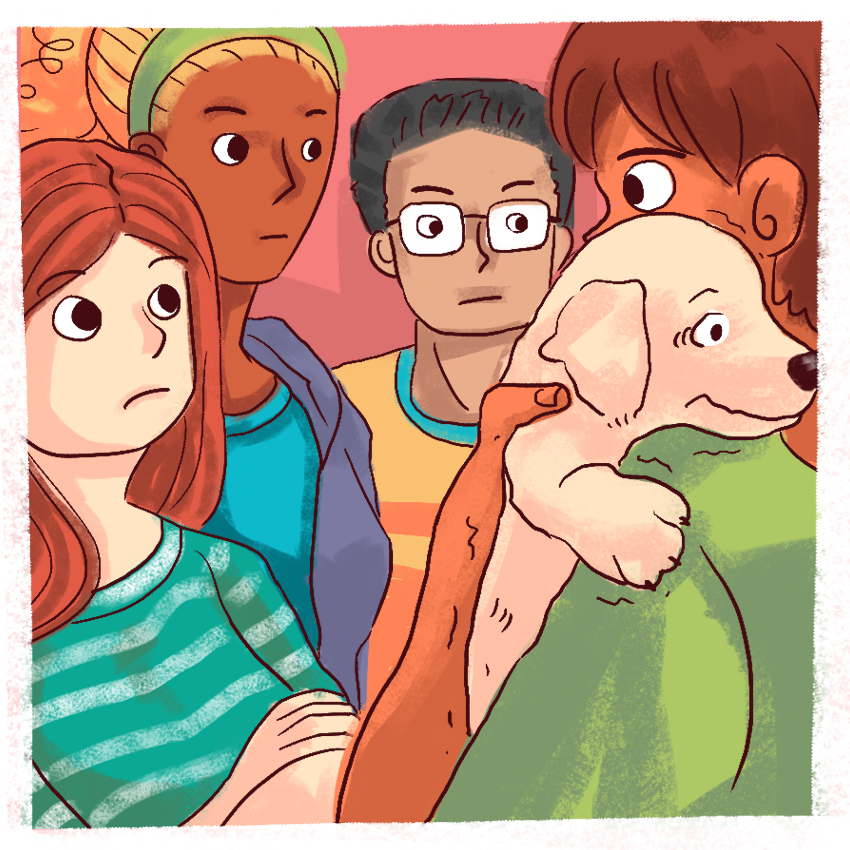
Once you’ve written down any details you remember, as well as any information that the other dog’s owner may have been willing and/or able to give you, you should try to find any witnesses who might have also seen the attack. Ask them what they saw and record every detail, while also asking if you can have their name(s) and phone number(s), in case you need to contact them in the future.
Contact Authorities If Necessary
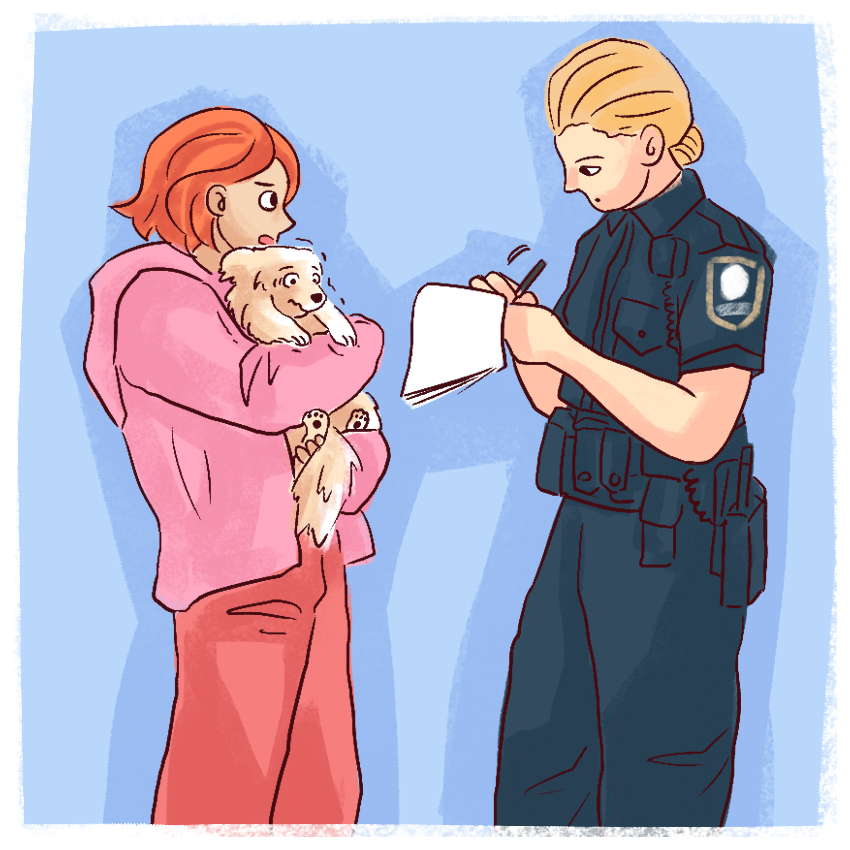
If the incident was serious in nature or if you are worried that the attacking dog might be a danger to others, then you should contact the authorities. In some places, it’s actually required that you report such an attack. Either reach out to your local neighborhood group, the area’s humane society, and/or the police to make the proper report and provide any necessary details. If you or your dog is seriously injured, you may also want to contact your lawyer.
Take Your Puppy to the Vet If Needed
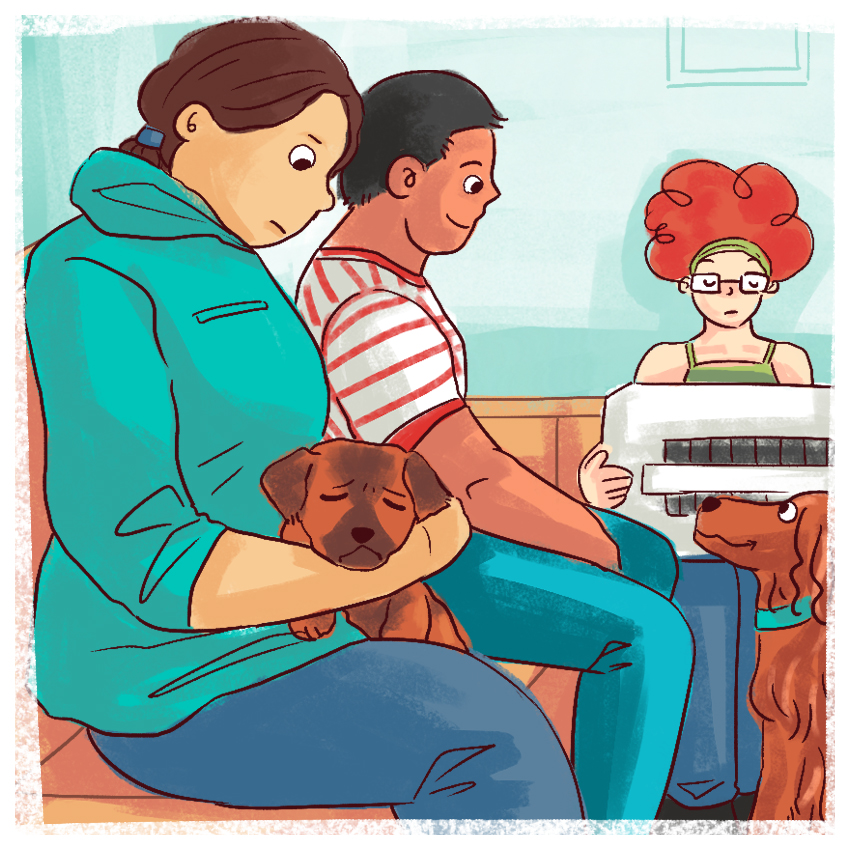
If your puppy was injured during the attack, you need to take them to the veterinarian right away to get checked out and to receive proper treatment. Even if your pup isn’t showing any visible signs of injury, a trip to the vet may still be a good idea, just to be safe.
Rest and Recuperate
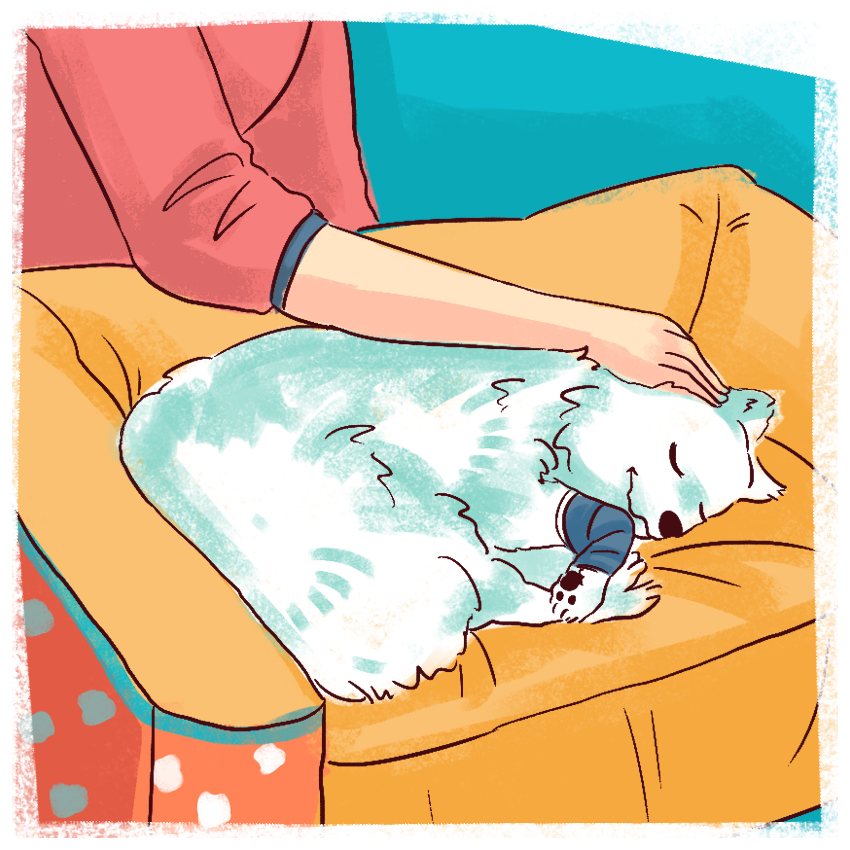
If your puppy was injured during the attack, your vet will not only provide medical care, they’ll also let you know what you need to do in order to help your dog recuperate. But even if your puppy didn’t need to see the vet, they’ll still be shaken and upset. Either way, your dog will need time to recover and lots of rest. They may also need help dealing with the lasting trauma of an attack.
"Normally, the psychological effects of an attack end up the biggest concern," Franklin explains to LittleThings.
Ease Back Into Your Walk Routine
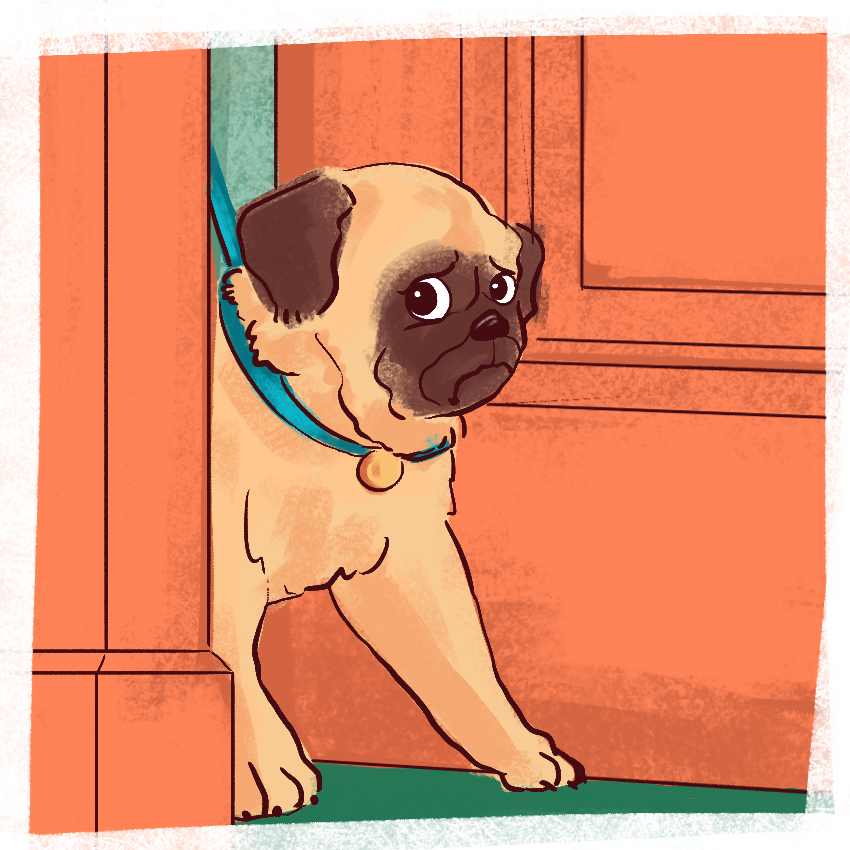
After an attack, you may have a totally understandable urge to keep your puppy safely inside forever. But it’s important to get them back into their walk routine. While you don’t want to rush it — you’ll definitely want to be sure that they’re both physically and mentally ready — when it’s time, you need to take it slow. You’ll also want to avoid the area where they were attacked so that they aren’t immediately reminded of the past trauma.
Begin by taking a short walk together around your yard or in the area right outside of your home to get your puppy comfortable on their leash again, and then start taking short walks around the block. Keep an eye on your puppy while you’re out and watch for signs of nervousness or panic. Speak calmly to your pup and let them know that everything’s OK. If a dog comes near, again reassure your pup and even take a moment to stop, if necessary. When they do well, offer them praise and maybe even a treat. When your puppy seems at ease with the short walks, you can increase the lengths of your trips outside and eventually get back to your normal route.
Plan Playdates With Familiar, Friendly Dogs
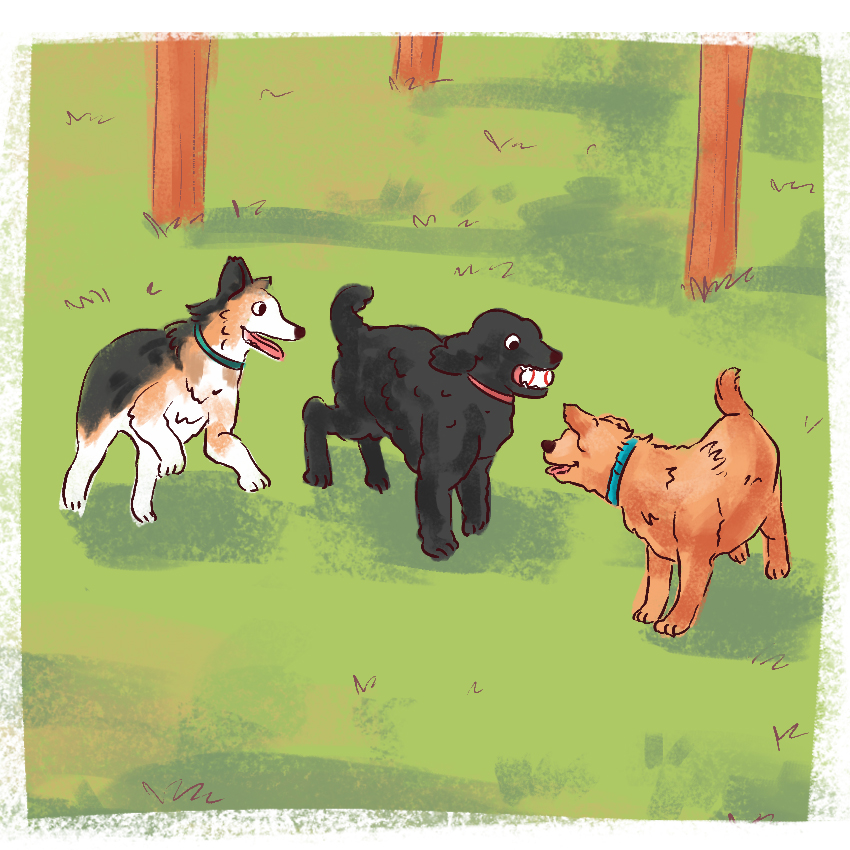
When your puppy is once again comfortable being outside with you, it’s time to reintroduce them to other dogs.
"There is no huge rush, but waiting too long is bad. Properly socializing a puppy post-attack with very well-behaved dogs is key the success," Franklin tells LittleThings.
If you can, plan playdates with other animals that your puppy is already familiar with and who will be friendly around your pet. Perhaps start with a playdate that involves your puppy and just one other dog that’s around the same size as your pup and then you can move on to playdates that include a few more dogs of various sizes.
Again, watch your puppy at all times for signs that they’re uncomfortable, nervous, or scared, and reassure them that you’re there to keep them safe. If you feel like your puppy is too overwhelmed, then simply end the playdate and try again another time.
Reintroduce Your Puppy to the Dog Park
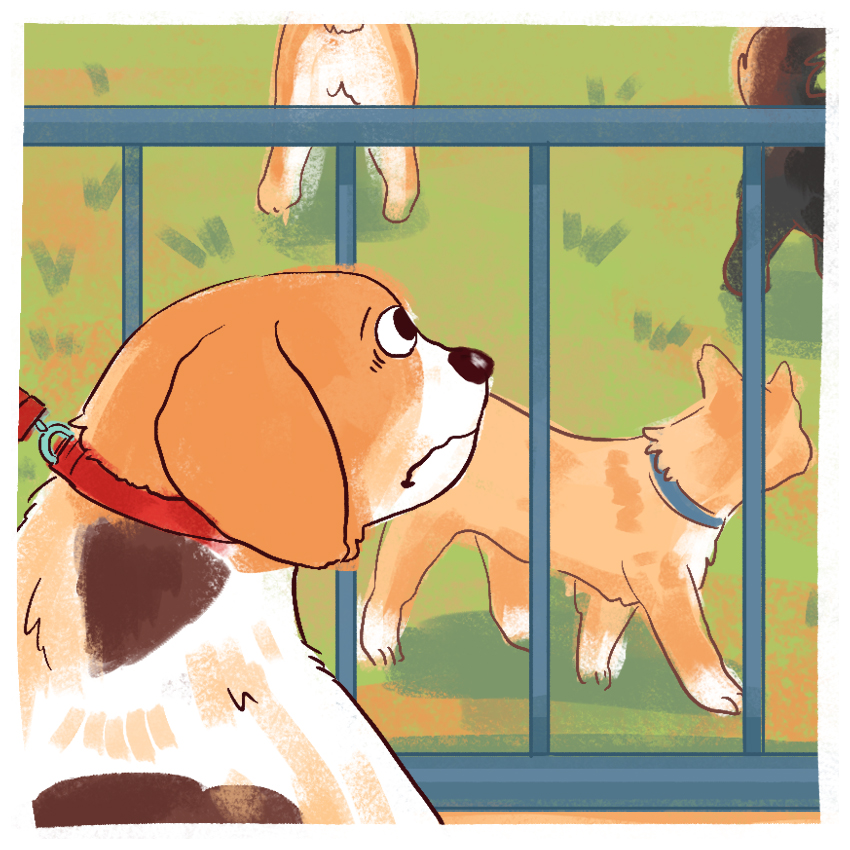
Your next step is to reintroduce your puppy to the dog park so that they can get used to (and not necessarily fear or panic around) dogs that aren’t immediately familiar. Just like the first two steps, take it slow, give them praise and treats when they’re doing well, and watch your dog for signs that they’re feeling overwhelmingly upset.
If they are too scared, start by staying on the perimeter of the park and don’t actually interact with the other dogs yet. When your puppy is more at ease, begin to get closer to the other dogs each time you visit the park. Then when your puppy is ready, let them approach the dogs, and introduce themselves to the other animals. When your puppy feels good about their circumstances, they’ll eventually start playing with the other dogs once again.
Take It Easy On Yourself
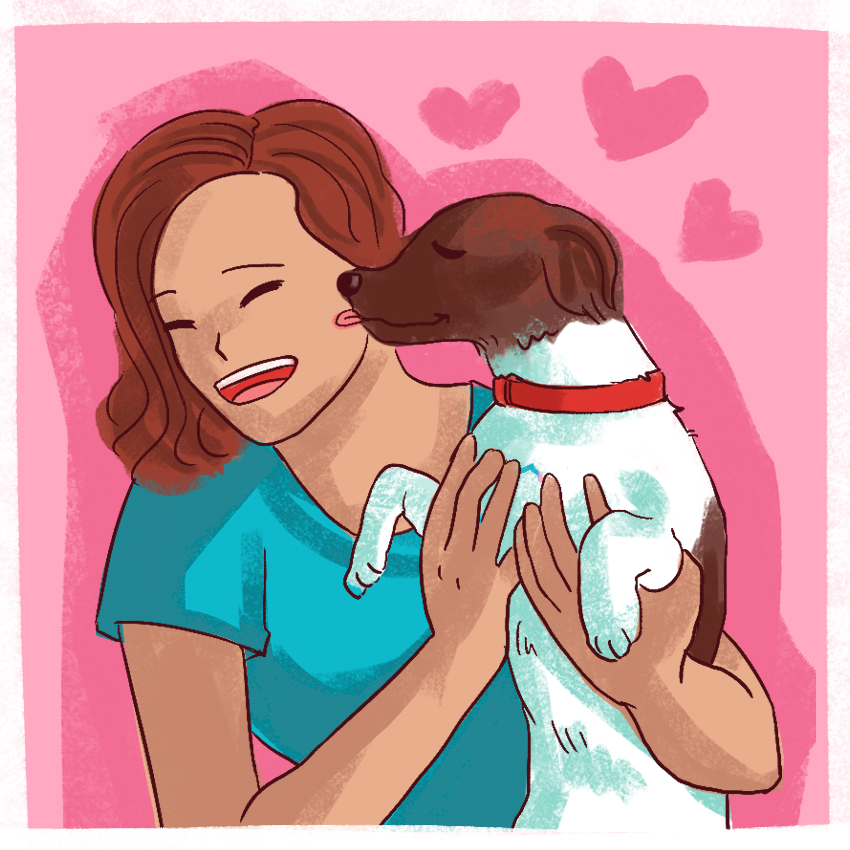
It’s your job to protect your puppy and keep them safe, so you might feel guilty about the fact that they were attacked. But, unfortunately, bad things can happen to your beloved pet that are simply out of your control. So, instead of dwelling on the horrible thing that happened, focus on helping your dog heal, recover, and get back to being the playful puppy that you know and love.




